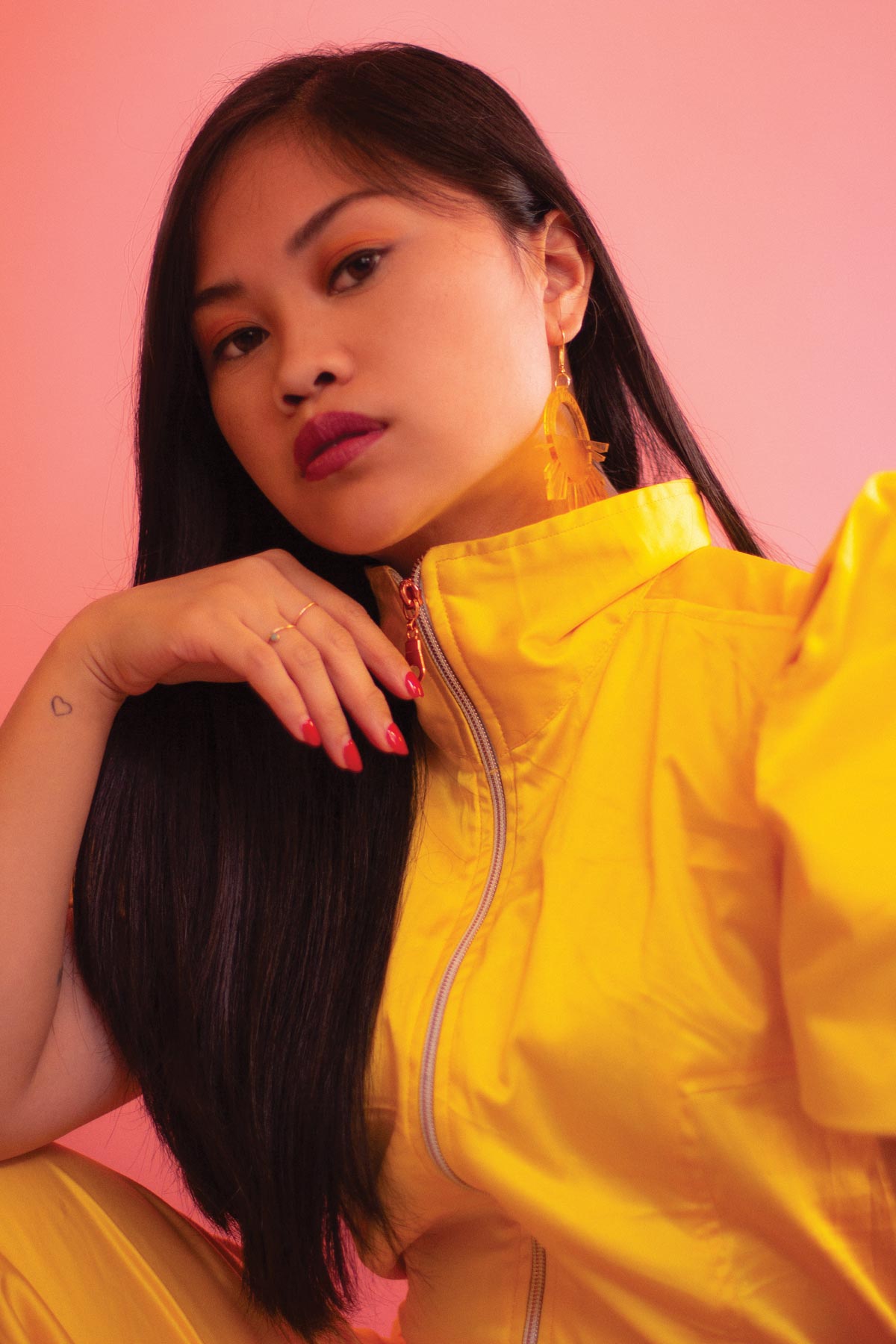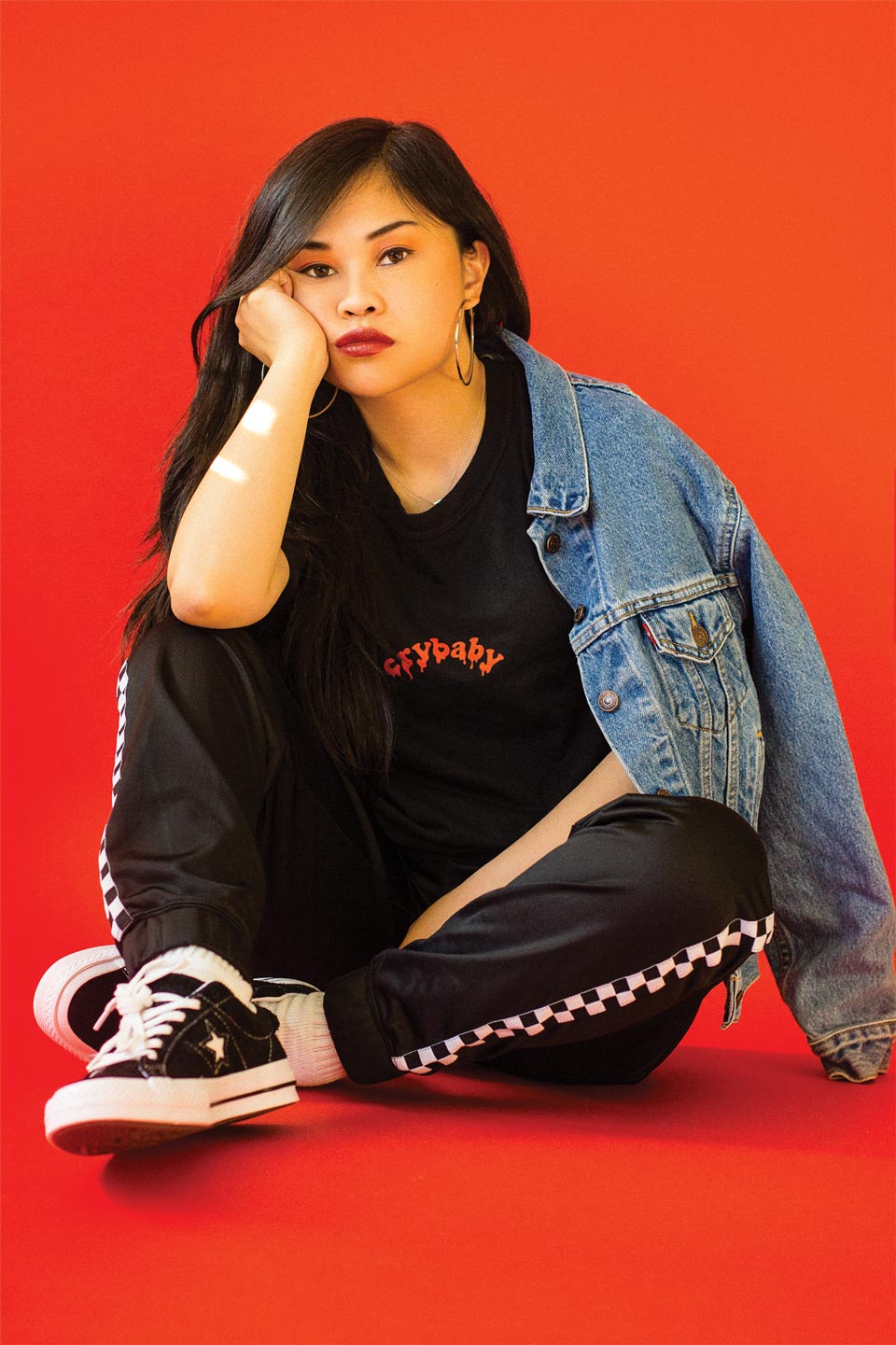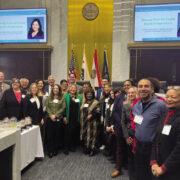
For Filipina American rapper Ruby Ibarra, 2020 was slated to be more of this balancing act as in the past few years — juggling live performances after work and on the weekends, while fine-tuning her sophomore album.
Before COVID-19 hit California, the 29-year-old did two sold-out shows at the Getty Center in Los Angeles in February and performed at the Sacramento Kings’ Filipino Heritage Night in early March.
Now, her performances have been strictly virtual. And the pandemic has put an emphasis on her 9-5 job as a scientist at a biotech company in the Bay Area, where she’s been involved in the quality control of COVID-19 test kits and research around a vaccine.
“When the pandemic was more visible, we shifted gears at work to make sure all hands were on the table and we could help in any way possible. Early on, we started with test kits,” Ibarra said during a recent Zoom interview with the Asian Journal. “Since then, we’ve just been continuing to run tests on a daily basis, more so for research. With the pandemic still being very real, my company is focusing on work towards the development of a vaccine.”
As of the beginning of September, the United States has reported more than 6 million positive cases and over 185,000 deaths. California alone bears the most cases out of any state with more than 707,000 cases and 13,018 fatalities, according to the state’s Department of Public Health.
Ibarra added, “The ultimate goal is to ramp up testing, specifically in this country, and to help with the research in any way toward a vaccine so that we can gain a sense of normalcy again.”

Ibarra, who was born in Tacloban, Philippines, moved to San Lorenzo, California at four years old. As she’s shared in a previous interview with the Asian Journal, albums by Filipino rapper Francis Magalona and American artists Tupac, Lauryn Hill and the Wu-Tang Clan were on heavy rotation at an early age, which kickstarted her love for hip-hop.
With threads like colorism — the culture of skin tone discrimination in the Philippines — to unifying Filipinos found in FrancisM’s music, she would continue those conversations two decades later from the lens of a Filipina American millennial raised in the Bay Area through her debut album, “Circa91,” released in October 2017. Throughout the 18-track album, Ibarra shifts from English, Tagalog and Waray, the language spoken in the Eastern Visayas.
Music has always been a passion, but another field that piqued her curiosity and fascination as a child were the sciences. Young Ibarra would read encyclopedias and science books for fun.
“I’ve always been such a big nerd when it came to reading books and learning new facts…I’d be the one to read the dictionary. I think that’s why I fell in love with words in the first place,” Ibarra said, adding that a childhood dream was to be a pediatrician. “I gravitated towards science because, to me, it ultimately explained how the world works.”
She went on to study biochemistry and molecular biology at the University of California, Davis because in a first-generation immigrant household, “education and finding a stable job” were ingrained early on.
“If music was not a viable career for me, I’d have this backup plan in the sciences so I ended up working for this biotechnology company straight out of college,” said Ibarra, whose work has revolved around molecular diagnostics.
Going seven months into the pandemic, the public is aware of coronavirus-related symptoms, from difficulty breathing to loss of taste, and safety measures like maintaining six feet from others and wearing a mask. However, there is still a lot of uncertainty around the disease and its long-term effects.

“There’s still a lot of things that we don’t know about this disease, but again, it comes with time and research,” Ibarra said. “But what gives me hope and optimism is that there is a lot of work being done, not just by my own company, but multiple labs and companies across the world.”
These days when she arrives home from work, she heads straight for the shower — not because she has to get ready for a night gig, but because she’s been taking extra precautions to keep herself and her fiancé safe, especially after working alongside co-workers.
Knowing how serious COVID-19 is, and how it has been affecting essential workers and her own Filipino American community, Ibarra is not shy about calling out folks who aren’t following the guidelines and has been vocal about the reopening of certain industries.
“It’s not lost on me that when I look on social media or turn on the news, we see people, around [my] age or generation, more dismissive towards the pandemic. We have been where we are since March as long as we don’t have a vaccine or clear research so I’d like to remind people to really trust the science,” she said.
Though Ibarra had some live performances scheduled for this year, the bright sides of staying at home are being able to rest and spending time with family.
She is hopeful that her second album will be released by the end of the year, as well as “7,000 Miles,” a documentary documenting her 2019 trip to the Philippines with her band, The Balikbayans.
Ibarra said that the album will have similar themes as heard on “Circa91” but will showcase her maturity as an individual and artist and weave in current events, such as the push for racial justice. Her latest song, “A Thousand Cuts,” to accompany Fil-Am filmmaker Ramona Diaz’s documentary of the same title parallels her use of music with veteran journalist Maria Ressa’s fight for press freedom.
“If anything, it will allow me to explore other parts of my identity as well. But I am definitely going to continue, to push Filipino culture forward. When it comes down to it, my music will always be a reflection of my experiences and who I am as a person, so I don’t want to ever escape from my music being Filipino,” she said.




